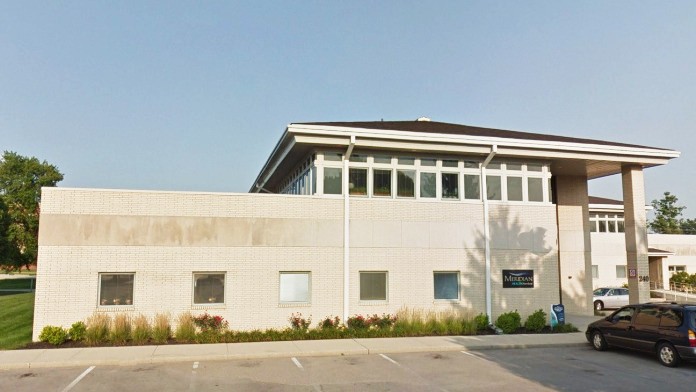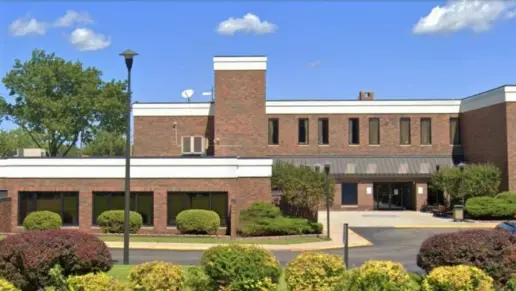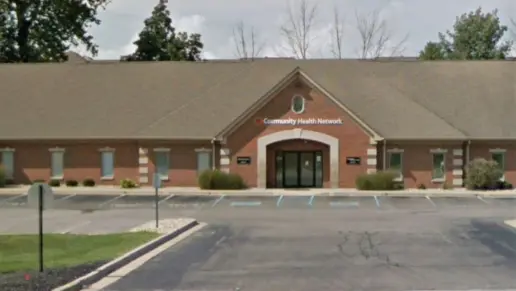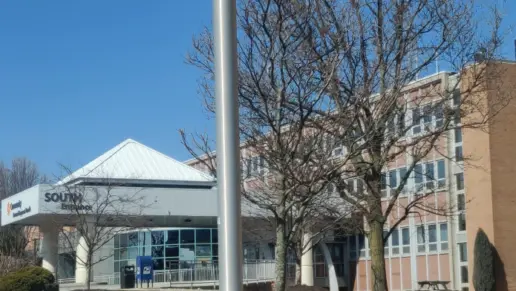The people at the front desk are not suited for customer service. They always make mistakes and are not interested in helping their clients, they lack compassion and empathy. And their counselors rely to much in medication.
About Meridian Health Services
Meridian Health Services, located in Muncie, Indiana, offers vital treatment and support for those struggling with substance use disorders. For those battling alcohol, drug, or tobacco addiction they provide all encompassing care from a staff of qualified professionals committed to promoting recovery. A range of treatment options are available depending on the severity of your addiction.
You can start with the intensive outpatient program (IOP) which entails at least nine hours of weekly focused addiction treatment. After finishing you can enroll in a 12 week program that focuses on long term recovery techniques and is structured as weekly group therapy sessions.
They provide a maternal treatment program for mothers with substance use disorders that is suited to both the mothers and their substance dependent newborns. This outpatient program places a high priority on whole person health. It promotes lifestyle modifications that benefit both mother and child through prevention, education, treatment and community support.
Their women’s recovery home offers comfort to women in need of support. This is a structured two phase program that uses a holistic approach to treat addiction and behavioral health in a residential setting. With an emphasis on integrated care, this setting combines primary medical care, addiction treatment, womens health support and pediatric services for moms and their kids.
Their home with hope program offers a continuum of care after primary treatment for individuals who are 18 years of age and older. This encouraging setting seeks to give you the tools you need to overcome addiction and return to your community without incident. Psychiatric assessments, medication management and medication assisted treatment (MAT) with Vivitrol and Suboxone are available in addition to these core programs. Peer recovery support, family support and addiction education as well as individual and group counseling are provided. They also offer aftercare services for ongoing support.
Latest Reviews
Rehab Score
Gallery

Location
Accepted Insurance
Other Forms of Payment
Medicaid is a state based program that helps lower-income individuals and families pay for healthcare. Medicaid covers addiction treatment so those enrolled can use their coverage to pay for rehab. When a program accepts Medicaid the client often pays very little or nothing out of their own pocket.
Private insurance refers to any kind of healthcare coverage that isn't from the state or federal government. This includes individual and family plans offered by an employer or purchased from the Insurance Marketplace. Every plan will have different requirements and out of pocket costs so be sure to get the full details before you start treatment.
Self-pay involves paying for treatment out of your own pocket. You can use savings or credit, get a personal loan, or receive help from family and friends to fund your treatment. If you don't have insurance or your insurance plan doesn't cover a specific program, self-pay can help ensure you still get the care you need.
Financial aid can take many forms. Centers may have grants or scholarships available to clients who meet eligibility requirements. Programs that receive SAMHSA grants may have financial aid available for those who need treatment as well. Grants and scholarships can help you pai for treatment without having to repay.
Sliding scale payments are based on a client's income and family size. The goal is to make treatment affordable to everyone. By taking these factors into account, addiction recovery care providers help ensure that your treatment does not become a financial burden to you or your family, eliminating one barrier to care.
Medicare is a federal program that provides health insurance for those 65 and older. It also serves people under 65 with chronic and disabling health challenges. To use Medicare for addiction treatment you need to find a program that accepts Medicare and is in network with your plan. Out of pocket costs and preauthorization requirements vary, so always check with your provider.
Military members, veterans, and eligible dependents have access to specific insurance programs that help them get the care they need. TRICARE and VA insurance can help you access low cost or no cost addiction and mental health treatment. Programs that accept military insurance often have targeted treatment focused on the unique challenges military members, veterans, and their families face.
Addiction Treatments
Levels of Care
Treatments
The goal of treatment for alcoholism is abstinence. Those with poor social support, poor motivation, or psychiatric disorders tend to relapse within a few years of treatment. For these people, success is measured by longer periods of abstinence, reduced use of alcohol, better health, and improved social functioning. Recovery and Maintenance are usually based on 12 step programs and AA meetings.
For long-term recovery from drug addiction, drug rehab in Indiana is often key. This treatment gives individuals who are struggling with a substance use disorder the tools to manage their disorder and achieve long-term sobriety.
Opioid rehabs specialize in supporting those recovering from opioid addiction. They treat those suffering from addiction to illegal opioids like heroin, as well as prescription drugs like oxycodone. These centers typically combine both physical as well as mental and emotional support to help stop addiction. Physical support often includes medical detox and subsequent medical support (including medication), and mental support includes in-depth therapy to address the underlying causes of addiction.
Substance rehabs focus on helping individuals recover from substance abuse, including alcohol and drug addiction (both illegal and prescription drugs). They often include the opportunity to engage in both individual as well as group therapy.
Programs


Clinical Services
Group therapy is any therapeutic work that happens in a group (not one-on-one). There are a number of different group therapy modalities, including support groups, experiential therapy, psycho-education, and more. Group therapy involves treatment as well as processing interaction between group members.
Contact Information
240 North Tillotson Avenue
Muncie, IN 47304







